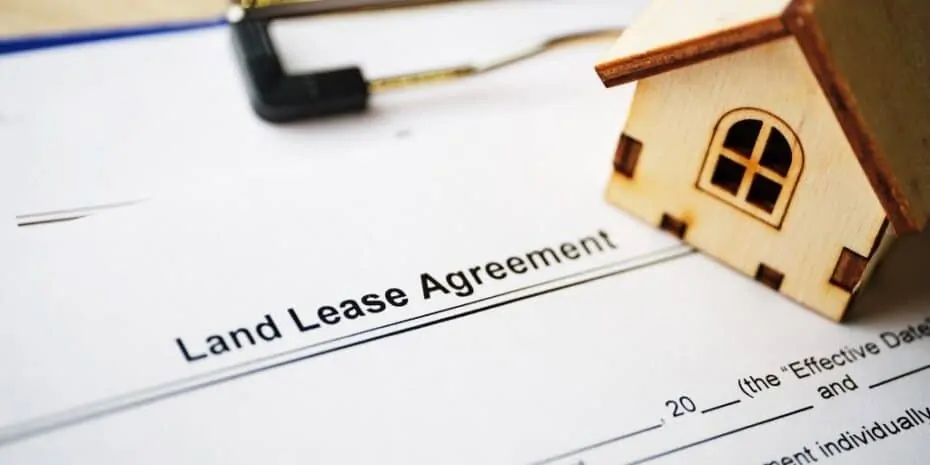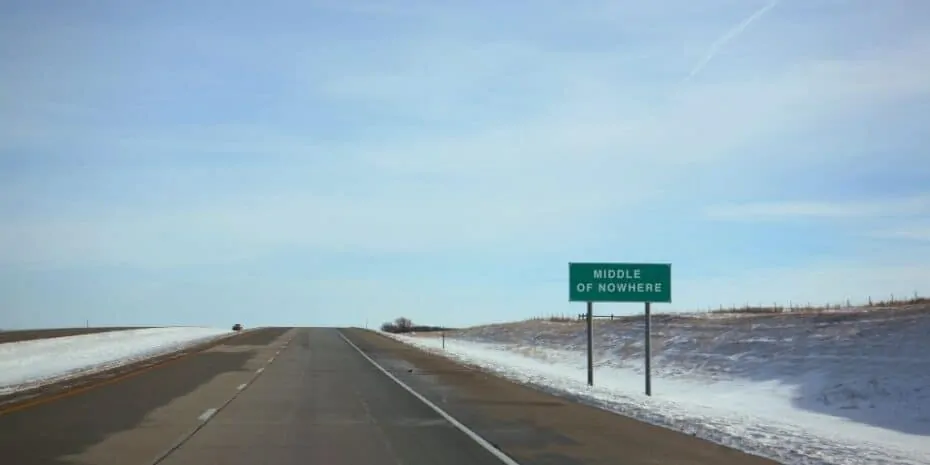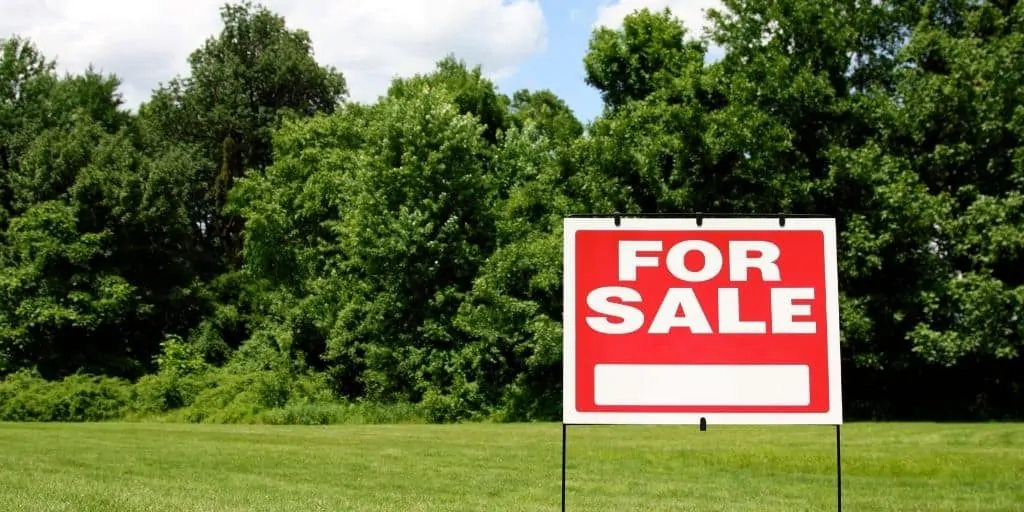I still remember the first time I heard about the idea of buying vacant land. My reaction was the same as most people's.
It sure didn’t seem that exciting, and I couldn’t understand how anyone could actually make money from a vacant land property as an investment.
However, part of that “lack of excitement” comes from a lack of understanding of how the land flipping business works and the huge opportunity it represents.
Let's cover some of the common misconceptions people have about the land investing business, and which of these myths actually have some half-truths buried inside them.
1. Land Is a Pointless Investment
Here’s a common misconception:
Vacant land is a “pointless” investment because it just sits there, it’s not that useful, and it doesn’t make any money. So what’s the point?
Well, that can be true IF you buy land without a clear plan or goal in mind. And a lot of people actually do this.
Every parcel of land is useful for something, but a lot of people buy it with a far-fetched dream that isn’t ever going to happen. Or, they buy it without doing their homework about what the local governing body will allow on the property.
So, is land a pointless investment? It can be if there's not a clear game plan for how you're going to use it or make money… but it's not so much the property's fault as it is the investor's fault for failing to think through their investment decision in the first place.
2. Land Doesn't Produce Income
Sometimes you’ll hear that land is a dumb investment because it doesn’t make money or generate any cash flow.
This statement makes about as much sense as someone who says,
“Houses are a dumb investment because they don’t make any money.”
Obviously, this is not true.
A house isn't going to make money simply because it's a house. It will make money if YOU, as the investor, take the right actions to make it a cash-flowing asset.
Likewise, vacant land can make A LOT of cash flow, and it's far less of a pain than any other type of real estate BECAUSE it’s vacant, nobody is living on it, and it behaves itself. There are no repairs to make, no toilets to unclog, and no tenants calling you at 3 am.
How can land make money? There are plenty of options to choose from.
Land can make money when you lease it to a farmer, a billboard company, a hunter, a mobile homeowner, and so on. Or even my favorite—if you own your land free and clear (as most landowners do), you can sell the property using seller financing for more money and interest. And because your buyer perceives themselves as the new owner (and not a tenant), they aren’t going to call you with all their problems; it’s up to them to make their payments and deal with the issues themselves.
If you’re a member of the Land Investing Masterclass, you already know this is an incredible way to make a lot of money from land. It’s a key strategy most land investors use when they quit their jobs and start living off their land-flipping business full-time.
RELATED: Land Investing Masterclass Review
However you choose to do it, there are many ingenious ways to make great cash flow with vacant land. It's much easier than making money from most other types of real estate.
3. You Can Only Buy Land Near Where You Live
This is one of the biggest limiting beliefs people have about land. I even fell prey to this for a few years when I started this business.
From a due diligence standpoint, I will say there is some value in visiting a vacant lot yourself before you buy it. You can see what it looks like on-site, what the surroundings are, and if there are any sights, sounds, or smells you find unappealing. Every time I’ve visited a property in person, I’ve found it more informative than merely looking at Google Earth, Google Street View pictures, and satellite maps.
So… if you can get to the property and lay eyes on it, it's not going to hurt anything… but I also have to say, you don’t NEED to visit your property in person before you buy it.
These days, there are a lot of ways to see, evaluate, and understand a vacant lot before you buy it (and this is actually a lot easier to do with land than with houses or buildings).
RELATED: 10 Google Earth Hacks Every Real Estate Investor Should Know
The important thing to realize is that it doesn’t need to be YOU who should physically inspect, measure, survey, and evaluate it. You can find this help from many services and places online without spending a fortune. And if you’re buying an expensive, high-end piece of land, the kicker is, even if you visit the property in person, you’ll STILL need to hire this extra help in most cases. Unless you happen to be a professional inspector or surveyor yourself.
4. You Can Do Whatever You Want With Your Land
Some people have this idea that they can do whatever they want with their land… but that’s only true to the extent that it doesn’t disagree with the local zoning and planning ordinance.
Unless your property is in the middle of nowhere, where nobody will ever see or care about what you’re doing, there will always be some kind of loose guidelines and limitations you must adhere to. And the closer you get to a city, the stricter and tighter those guidelines and limitations will get.
And let’s not forget property taxes are a form of rent that all landowners must pay to the ultimate “landlord”—the government. Don’t lose sight of the fact that you never have absolute freedom to do whatever you want with your land.
5. Land Has a Fixed, Easily Measurable Value
You’ve probably heard people say, “my property is worth X amount” or “this land is valued at a certain number of dollars…” but let's unpack this a little bit.
When dealing with a house or a building, there usually is enough recent sales data in most markets. When you look at similar properties that have recently sold and how much they sold for, it is possible to estimate the cost of building or rebuilding that property. You can even take the property's income and use all these numbers to come up with a pretty reasonable “value” for that property.
With land, though, most of this data doesn’t exist. When you're talking about a vacant residential lot that isn’t currently generating any income for the owner and has no improvements on it, with very few similar properties in the area… all the usual data an appraiser would look at simply isn’t there.
When the data doesn't exist, a lot more guesswork is involved, even for a professional appraiser. And if an appraiser doesn’t even know, the county assessor, a local realtor, or even the owner isn't going to have a solid guess either.
RELATED: How to Find the “Market Value” of Vacant Land
There are ways to figure out a ballpark value by looking at similar property listings in the area (not the properties that have sold, but the properties that are currently listed).
This data certainly isn't as accurate as genuine sold comps, but it still gives you something to gauge for what other owners are trying to sell their properties for.
My point is that with vacant land, there is A LOT of room for interpretation regarding value.
6. You Can Only Buy Land at its Asking Price
Some people assume that if they want to buy land, they need to get on a website like Zillow or LandWatch and start browsing the internet for land for sale. And when they see the seller’s asking price, that is the price they have to pay because that's what it's worth.
As we just discussed, “value” is subjective with vacant land. All land has value to some degree, but pinning down a precise number everyone objectively agrees with is another thing entirely.
In terms of which properties you can buy, many first-time homebuyers are under the impression that they’re only allowed to buy properties with a “for sale” sign in the front yard. That idea isn’t just false—it’s a dangerous assumption that will lead you to overpay for some of the worst deals out there.
To find the best deals on land at the lowest prices, you need to find reluctant landowners who don’t want their property, and you need a scalable way to contact A LOT of these people without wasting so much time. When you learn how to do this, you will be shocked at how many opportunities there are to buy cheap land.
RELATED: How I Find Motivated Sellers (And Get Them Calling Me)
Many of these deals come from people who inherited their land (it was never theirs, they never wanted it, or didn’t care about the property). Or perhaps they bought it a long time ago, their plans changed, or some financial event has happened, and they need to cash out now. In any case, these people want to sell but don’t know where or how to cash out their unwanted property quickly.
The bottom line is that “value” is very elastic with vacant land. The properties listed for sale represent just a small fraction—and the most expensive faction—of all the opportunities out there.
7. Land is a Simple Type of Property
You may have heard people say land is a “simple” type of real estate. This is true, but the word “simple” needs a bit of context.
Land is simpler than most other property types because there’s nothing on it. Nothing that can fall apart, break, get stolen, burn down, or otherwise. This makes land much easier to deal with, BUT land isn’t without its issues.
When you’re buying a piece of land, there are many things you need to think about and evaluate, depending on what you plan to use it for. This is why it’s crucial to have a specific plan in mind so you know what to look for in the first place.
For example, is there road access to it? Will the local planning and zoning department allow you to use it for what you want? Does it have access to all the basic utilities (and if not, can you create that access)? Are there any usability issues (prone to flooding, is it on a steep slope, is it near wetlands, is there any access to water, can it handle a septic system, etc.).
RELATED: The Truth About Land: 15 Warning Signs to Watch For When Buying Vacant Land
Many of these questions don’t even need to be asked when you’re buying a house because these questions have already been answered. Granted, houses have a lot of other issues to address, but to say that land is just “simple” without acknowledging the other things you DO need to think about is a little misleading.
8. You Can Get a Mortgage to Buy Vacant Land
One interesting thing about land is that unless you have an immediate plan to develop that land in some way (e.g., build a house, create a subdivision, etc.) or make money from it (e.g., using it for farmland, leasing it out to hunters, etc.), most lenders want nothing to do with vacant land properties.
Part of the reason is risk. From a collateral standpoint, it’s hard to know what a vacant land property is worth. If it’s not making money or serving a valuable purpose, it’s a risky type of collateral for them to get involved with.
As a result, most people who own vacant land (that isn’t being used for anything) own it free and clear because they have to.
This makes it easier to negotiate a lower price when you buy it because the owner doesn’t have a mortgage they have to pay off. It also means that when you sell it, you can provide a HUGE value to your buyers if you’re willing to offer seller financing on the deal.
Seller financing isn’t always the right fit for every land seller, but if you’re willing to accept installment payments for your property over a longer period, your property will be much easier to sell because you’re offering easy access to financing when no other bank will. You can also make more money through interest, closing fees, and a higher sale price. It’s also a great way to create a income stream if you’re looking for that sort of thing.
After Myth-Busting, What's Next?

Land is a great investment, but it’s easy to misunderstand the opportunity and what is and isn’t available here.
If you want to learn more, check out our library of land investing content right here on the blog.
And if you want to build a serious money-making business as a land investor, check out the Land Investing Masterclass. This community is filled with hundreds of people who have forever changed their financial life through this unique real estate investing model.






